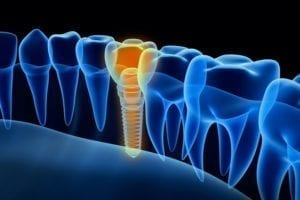Patients with missing teeth can find an ideal tooth replacement solution with dental implants. These fixtures can restore normal eating and speaking abilities while enhancing the appearance of your smile.
There are several types of dental implants that can suit your unique dental needs. Dr. Abraham Stein, a best cosmetic dentist in Chicago, IL outlines three types of dental implants you can choose that will best restore your smile.

Find the Best Types of Dental Implants for You
Single Dental Implants
Patients missing one tooth can benefit from a single dental implant. This treatment involves a dentist surgically placing a titanium post into the patient’s jaw. Once this heals, your dentist will secure a prosthetic tooth or crown to an abutment attached to the post above the gum line.
This will enhance the appearance of your smile by filling gaps where a tooth was missing. You will also notice lessened difficulty in eating, speaking, and other oral functions.
Dental Implant-Supported Bridges
Dental implant-supported bridges can help patients who are missing several teeth in a row. With this treatment, your dentist will use two surgically inserted posts, one on each end of the bridge prosthetic, which will be secured to the posts after they have healed.
Dental implants are a permanent tooth replacement solution, but you can ensure the best results from these fixtures by practicing good oral hygiene. Keeping your mouth healthy can make it a stable foundation to support your implants for as long as possible.
All-on-Four Dental Implants
All-on-Four dental implants can replace an entire arch of teeth. Some patients use these implants to replace both the top and bottom sets of teeth. These implants are secured with four surgically placed posts onto which the arch will be secured.
Missing teeth can lead to deterioration of bone in the jaw, but dental implants can prevent this as well as encourage bone regeneration due to its simulation of the absent tooth root. Other tooth replacement treatments, like dentures, do not have this benefit because they restore missing teeth only at the gum line.
